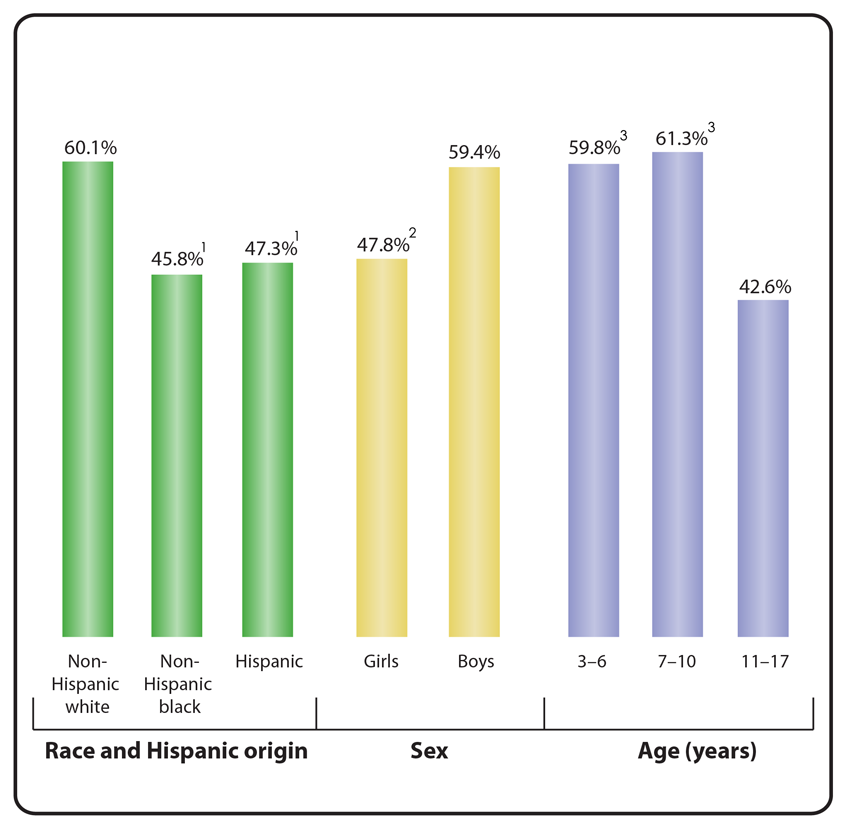
Among children with any communication or swallowing disorder, the prevalence of receiving an intervention service for their disorder was highest among non-Hispanic white children (60.1%) compared with both non-Hispanic black (45.8% 1) and Hispanic children (47.3% 1). Boys with any communication or swallowing disorder (59.4%) were more likely than girls with any communication or swallowing disorder (47.8% 2) to have received an intervention service for their disorder. Both children ages 3–6 years (59.8% 3) and 7–10 years (61.3% 3) with any communication or swallowing disorder were more likely than those aged 11–17 years (42.6%) to have received an intervention service for their disorder.
1Significantly different from non-Hispanic white children (p < 0.05).
2Significantly different from boys (p < 0.05).
3Significantly different from children ages 11–17 years (p < 0.05).
Note
Data are based on household interviews with parents or adult caregivers of children in a sample of the civilian noninstitutionalized U.S. population.
Data source
CDC/NCHS, National Health Interview Survey, 2012
Definitions
Speech problem: Based on a positive response to the question, "During the past 12 months, has [sample child] had a problem speaking, such as making speech sounds correctly or stuttering, that lasted for a week or longer?"
Language problem: Based on a positive response to the question, "During the past 12 months, has [sample child] had a problem learning, using, or understanding words or sentences that lasted for a week or longer?"
Voice problem: Based on a positive response to the question, “During the past 12 months, has [sample child] had any problems or difficulties with his/her voice, such as too weak, hoarse, or strained, that lasted for a week or longer?"
Swallowing problem: Based on a positive response to the question, "During the past 12 months, has [sample child] had a problem swallowing food or beverages that lasted for a week or longer?"
Communication disorder: Based on a positive response to at least one of the four problems listed above. Disorders were parent-reported and not necessarily diagnosed by a doctor or health care professional.
Receipt of intervention services: Respondents who indicated that the sample child had a speech, language, voice, or swallowing problem were then asked the following question separately for each type of communication disorder, "During the past 12 months, did [sample child] receive speech language therapy or other intervention services for his/her 1) voice problems; 2) problems swallowing, 3) speech problems; 4) using, learning, or understanding words or sentences; respectively?"

